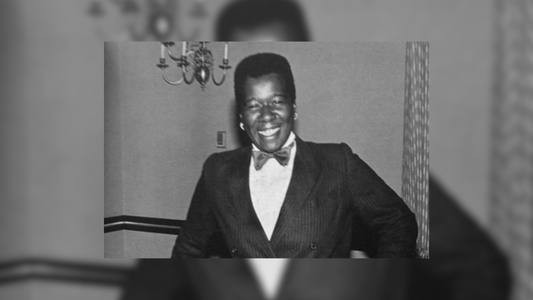In a democratic society, voting is often viewed as the most direct way for citizens to influence government and policy. However, while casting a ballot is crucial, it represents just one aspect of civic engagement. True democratic participation extends beyond Election Day. In today's political climate, where many feel disillusioned or disconnected from their representatives, it's essential to understand the broader spectrum of ways to effect change. Here’s how you can engage politically beyond the ballot box:
1. Activism: The Power of Advocacy and Awareness
Activism involves taking direct action to bring about social or political change. This could mean participating in protests, signing petitions, or supporting advocacy campaigns. Activism can be a powerful way to raise awareness about issues that may not be getting enough attention from elected officials or the mainstream media. It can also apply pressure to policymakers, making it clear that there is a strong, organized base of support or opposition for a particular cause.
For example, the recent surge in climate strikes, organized by youth activists worldwide, has pressured governments to adopt more aggressive climate policies. Similarly, grassroots movements like the Black Lives Matter movement have driven significant changes in public discourse and policy related to police reform and racial justice. By joining these movements, individuals can amplify their voices and build momentum for meaningful change.
2. Community Organizing: Building Power from the Ground Up
Community organizing is a more localized form of civic engagement. It involves mobilizing community members to address specific issues that affect them directly. This might mean organizing a neighborhood meeting to discuss local policing policies, creating a community garden to address food deserts, or starting a local campaign to combat voter suppression.
Community organizing is essential because it builds power from the ground up. Unlike top-down approaches, where change is imposed from above, community organizing empowers individuals to identify their problems and work collectively to solve them. It also creates lasting networks of engaged citizens who can mobilize quickly and effectively when new challenges arise.
By engaging in community organizing, you can help build a more connected, resilient community that is better equipped to advocate for its needs and interests. This form of engagement also offers a way to influence local decision-makers, such as city councils and school boards, who often have more immediate control over issues that affect daily life.
3. Supporting Political Causes: Time, Talent, and Treasure
Supporting political causes doesn't just mean donating money, although financial contributions are undoubtedly important. It also involves volunteering your time and skills to organizations and campaigns that align with your values. Whether you’re knocking on doors for a local candidate, phone banking for a policy initiative, or leveraging your professional skills to support a nonprofit, there are countless ways to get involved.
Supporting political causes can also mean becoming a thought leader within your own networks. Sharing information, educating peers, and encouraging conversations around critical issues can help create a more informed and engaged electorate. By building awareness and fostering dialogue, you can influence opinions and inspire others to take action.
Moreover, many organizations focus on issues like voter rights, climate action, or criminal justice reform. By dedicating time and effort to these groups, you help sustain their work and expand their impact.
4. Engaging in Local Politics: Where Your Voice Matters Most
While national politics often dominate the headlines, local politics can have an equally profound impact on your daily life. City councils, school boards, and county commissioners make decisions on essential matters such as education, policing, public health, and housing. These local bodies can be more accessible and responsive to citizen input than state or federal officials.
Getting involved in local politics can be as simple as attending a city council meeting, participating in town halls, or writing to local representatives about issues you care about. You can also serve on local boards and commissions, run for local office, or help other candidates who align with your values. Local engagement often provides a more direct path to influencing policy and creating change.
5. Educating Yourself and Others: Knowledge is Power
In a world where misinformation is rampant, educating yourself about political issues, candidates, and policies is crucial. This education enables you to make informed decisions and engage in meaningful discussions with others. It’s not just about understanding who’s running for office but also about grasping the intricacies of policy proposals, historical context, and the impact of various governance styles.
Sharing this knowledge is equally important. By discussing these topics with friends, family, and colleagues, you help create a more politically aware society. These conversations can lead to increased voter turnout, greater advocacy efforts, and more robust support for community initiatives.
6. Supporting Independent Journalism and Media Literacy
Quality journalism is essential for a functioning democracy, providing citizens with accurate and unbiased information. Supporting independent journalism through subscriptions, donations, or sharing credible news stories helps combat misinformation and provides a platform for underrepresented voices. Encouraging media literacy—understanding how to critically assess news sources and recognize bias—is also a powerful way to ensure that public discourse remains rooted in facts.
Conclusion: Civic Engagement is a Year-Round Commitment
Voting is a critical component of democratic participation, but it should be viewed as the beginning rather than the end of civic engagement. By understanding the many ways you can engage beyond the ballot box—through activism, community organizing, supporting causes, engaging in local politics, educating yourself and others, and supporting independent journalism—you can wield your power as a voter more effectively.
In doing so, you become an active participant in shaping not just the future of your community, but the future of the nation as a whole. Your voice matters, and your actions have the power to inspire change.




